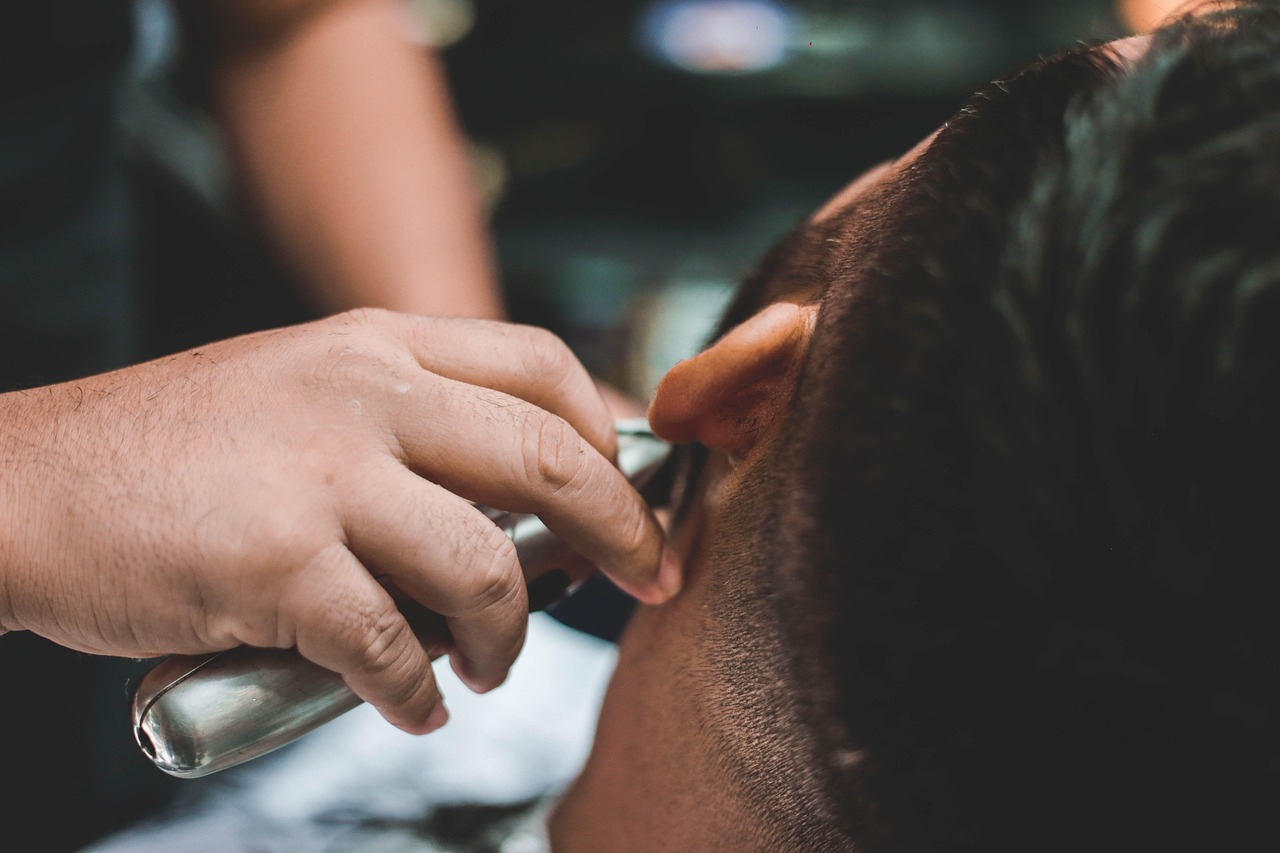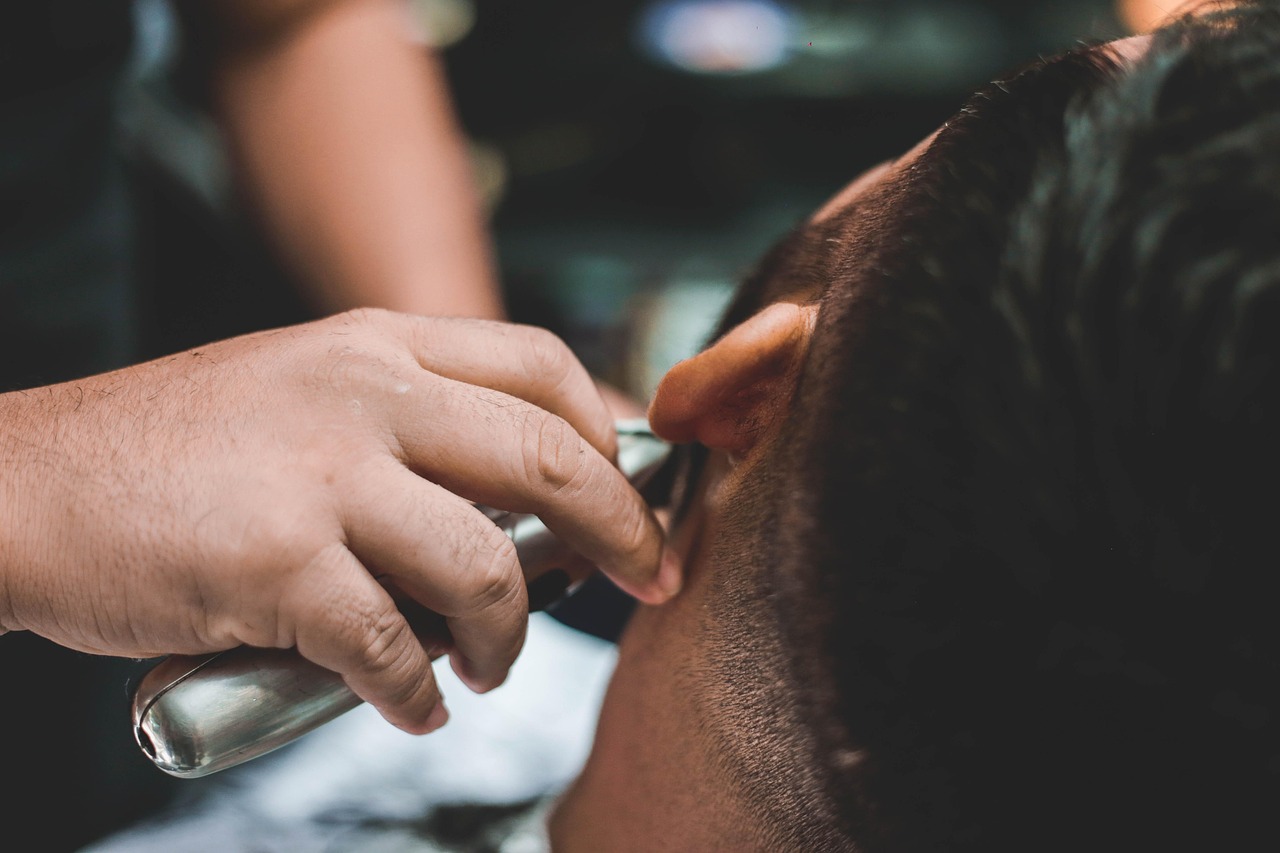When considering hair restoration, it’s crucial to explore top-rated hair transplant clinics in Chicago. These clinics offer a variety of services and advanced techniques designed to help patients achieve natural-looking results. With numerous options available, understanding the different services and patient experiences can guide you in making an informed decision.
Understanding Hair Transplant Techniques
There are primarily two popular techniques for hair transplantation: Follicular Unit Extraction (FUE) and Follicular Unit Transplantation (FUT). FUE involves extracting individual hair follicles from the donor area and implanting them in the balding areas. This method is minimally invasive and leaves no linear scar. On the other hand, FUT involves removing a strip of scalp from the donor area, which is then dissected into individual follicular units for transplantation. Both techniques have their advantages, and the choice depends on individual needs and the clinic’s expertise.
Top Clinics for Hair Restoration in Chicago
| Clinic Name | Services Offered | Patient Satisfaction |
|---|---|---|
| Chicago Hair Institute | FUE, FUT, PRP Therapy | Highly Rated |
| Hair Restoration Institute | FUE, Scalp Micropigmentation | Excellent Reviews |
| Renew Hair & Skin Clinic | FUE, FUT, Laser Therapy | Very Satisfied |
Clinic Reviews and Patient Testimonials
- “The team at Chicago Hair Institute transformed my life. The results were beyond my expectations!”
- “I felt supported throughout the process at the Hair Restoration Institute. The staff was knowledgeable and caring.”
- “Renew Hair & Skin Clinic provided a comfortable environment, and my hair looks fantastic!”
Cost of Hair Transplants in Chicago
The cost of hair transplants can vary significantly based on the clinic, the technique used, and the extent of hair loss. On average, patients can expect to pay between $4,000 and $15,000 for their procedures. It’s essential to discuss pricing during your consultation to avoid any surprises.
Consultation Process at Hair Clinics
During your initial consultation, you will undergo a thorough assessment of your hair loss and discuss potential treatment options. This is also the time to ask questions about the techniques, expected results, and recovery process.
Post-Transplant Care and Recovery
Post-operative care is vital for optimal results. Patients should follow their doctor’s instructions carefully, manage discomfort with prescribed medications, and maintain a gentle hair care routine to promote healing.
Choosing the Right Clinic for You
When selecting a hair transplant clinic, consider factors such as the clinic’s credentials, the technology they use, and the level of patient care provided. Researching reviews and testimonials can also help ensure you make a confident decision in your hair restoration journey.

Understanding Hair Transplant Techniques
In the realm of hair restoration, understanding the various hair transplant techniques is essential for anyone considering this transformative procedure. Among the most popular methods are Follicular Unit Extraction (FUE) and Follicular Unit Transplantation (FUT). Each technique has its unique advantages and considerations, making it crucial to explore these options thoroughly.
Follicular Unit Extraction (FUE) is a minimally invasive technique that involves the individual extraction of hair follicles from the donor area, typically the back of the head. This method is favored for its natural-looking results and minimal scarring. Since the follicles are removed one by one, patients often experience quicker recovery times and less post-operative discomfort. Additionally, FUE allows for the possibility of harvesting hair from other parts of the body, which can be beneficial for individuals with limited donor hair on the scalp.
On the other hand, Follicular Unit Transplantation (FUT), often referred to as the strip method, involves removing a strip of skin from the donor area, from which hair follicles are then extracted. This technique can yield a larger number of grafts in a single session, making it a suitable choice for patients requiring extensive coverage. However, FUT typically results in a linear scar, which may be a concern for those who prefer shorter hairstyles. The healing process may also take longer compared to FUE.
When choosing between FUE and FUT, it is important to consider factors such as hair type, desired results, and personal preferences. Consulting with a qualified hair transplant specialist can provide tailored recommendations based on individual needs. Both techniques have proven effective, and understanding their differences can empower patients to make informed decisions about their hair restoration journey.

Top Clinics for Hair Restoration in Chicago
Chicago is home to some of the most renowned hair transplant clinics in the country. These clinics not only offer advanced techniques for hair restoration but also prioritize patient satisfaction and personalized care. Below is an overview of leading clinics in the area, highlighting their unique offerings and reputations.
| Clinic Name | Techniques Offered | Patient Satisfaction | Unique Services |
|---|---|---|---|
| Chicago Hair Institute | FUE, FUT | 95% Positive Reviews | Free Initial Consultation |
| Restore Hair | ARTAS Robotic FUE | 90% Positive Reviews | 24/7 Patient Support |
| NewMe Health | PRP Therapy, FUE | 92% Positive Reviews | Customized Treatment Plans |
Each of these clinics has established a strong reputation for their expertise and patient care. For instance, the Chicago Hair Institute is well-known for its advanced techniques and high success rates, while Restore Hair utilizes cutting-edge robotic technology to enhance the precision of hair transplants.
Patient satisfaction is a critical factor when choosing a clinic. Many patients have shared their positive experiences, noting the professionalism and care provided by the staff. The unique services offered, such as free consultations and ongoing support, further contribute to the overall positive experience for individuals seeking hair restoration.
When considering a hair transplant, it is essential to research and evaluate each clinic’s offerings, techniques, and patient testimonials. This comprehensive approach will help you make an informed decision that aligns with your hair restoration goals.
Clinic Reviews and Patient Testimonials
When it comes to selecting a hair transplant clinic, patient testimonials and reviews serve as invaluable resources. They provide firsthand insights into the experiences of individuals who have undergone hair restoration procedures. These accounts can significantly influence potential patients’ decisions, guiding them towards clinics that prioritize quality and patient satisfaction.
Many patients express their journeys through online platforms, detailing not only their results but also the overall experience at the clinic. For instance, a common theme among positive reviews is the professionalism of the staff. Patients often highlight how knowledgeable and supportive the medical team is, which can alleviate anxiety and foster trust. One patient stated, “The staff was incredibly attentive and made me feel comfortable throughout the process.”
Additionally, testimonials frequently address the effectiveness of the procedures performed. Many patients report significant improvements in their hair density and overall appearance, which boosts their confidence and quality of life. A review noted, “I was amazed at the natural look of my new hair; it truly changed my life!” Such positive feedback underscores the importance of selecting a clinic with a proven track record.
However, it’s essential to consider constructive feedback as well. Some patients share concerns regarding post-operative care or recovery times. A balanced view can help prospective clients set realistic expectations. One patient mentioned, “While the results were fantastic, the recovery took longer than I anticipated, but it was worth it.” This kind of honest feedback can prepare future patients for their own journeys.
In conclusion, patient testimonials and reviews are crucial in evaluating hair transplant clinics. They offer a window into the experiences of others, helping potential patients make informed decisions. By analyzing both positive and constructive feedback, individuals can better understand what to expect and choose a clinic that aligns with their needs.
Success Stories from Satisfied Patients
In the vibrant city of Chicago, numerous individuals have embarked on transformative journeys through hair transplant procedures, ultimately leading to remarkable success stories. These patients, once burdened by hair loss, have found renewed confidence and satisfaction through various clinics specializing in hair restoration.
John’s Journey: From Self-Doubt to Confidence
At 35, John faced significant hair thinning that affected his self-esteem. After researching local clinics, he chose a renowned facility known for its Follicular Unit Extraction (FUE) technique. Post-surgery, John shared, “The results exceeded my expectations. I feel like I have reclaimed my youth!” His story is a testament to the life-changing impact of hair transplants, showcasing how effective procedures can restore not just hair, but also confidence.
Maria’s Experience: A New Lease on Life
Maria, a 42-year-old professional, struggled with hair loss due to genetic factors. After consulting with a specialist in Chicago, she decided on a Follicular Unit Transplantation (FUT) method. “I was nervous at first, but the team made me feel at ease,” she recalled. Six months post-surgery, Maria’s hair has not only grown back but has also given her a fresh perspective on life. “I feel beautiful again,” she expressed, highlighting the emotional benefits of her experience.
David’s Transformation: A Personal and Professional Boost
David, a 29-year-old entrepreneur, faced significant hair loss that impacted his professional image. After extensive research, he opted for a hair transplant at a top-rated clinic in Chicago. “The procedure was quick, and the recovery was smoother than I anticipated,” he noted. With his new hair, David has seen positive changes in both his personal and professional life, stating, “I feel more confident in meetings and social gatherings. It’s truly been a game-changer.”
These stories reflect the profound impact of hair restoration procedures on individuals’ lives in Chicago. Each patient’s journey highlights not only the effectiveness of the techniques used but also the importance of choosing the right clinic for a successful outcome. If you are considering a hair transplant, these testimonials serve as powerful reminders of the potential for transformation and renewed confidence.
Common Concerns and Feedback
When considering a hair restoration procedure, many potential clients have valid concerns and questions based on the experiences of previous patients. This section aims to address those common inquiries and provide clarity on what to expect during the hair restoration journey.
- Understanding the Procedure: Many patients express uncertainty about the techniques used during hair transplants, such as Follicular Unit Extraction (FUE) and Follicular Unit Transplantation (FUT). It is crucial to have a clear understanding of these methods to make an informed decision.
- Recovery Time: A frequent concern is the duration of recovery and when normal activities can be resumed. Patients often want to know how long they should expect to take off work and when they can return to their daily routines.
- Pain Management: Concerns about discomfort during and after the procedure are common. Patients frequently seek information on pain management strategies that clinics offer to ensure a comfortable recovery.
- Results Timeline: Many individuals are eager to know when they can expect to see visible results from their hair restoration. Understanding the timeline for hair growth post-procedure can help manage expectations.
- Cost Transparency: Financial aspects are a significant concern for many patients. They often seek clarity on the overall costs involved and whether financing options are available.
Addressing these concerns can significantly enhance the comfort level of potential clients as they embark on their hair restoration journey. Clinics that provide thorough consultations and transparent information tend to receive positive feedback from patients, further reinforcing trust and satisfaction.
Ultimately, understanding these common concerns not only helps potential clients prepare for their hair restoration experience but also empowers them to make well-informed decisions.
Cost of Hair Transplants in Chicago
Understanding the financial aspect of hair transplants is vital for anyone considering this life-changing procedure. In this section, we will break down the costs associated with hair transplants in Chicago, highlighting the various factors that influence pricing.
The average cost of hair transplant procedures in Chicago can vary significantly, typically ranging from $4,000 to $15,000. This wide range is influenced by several key factors:
- Technique Used: Different hair transplant techniques, such as Follicular Unit Extraction (FUE) and Follicular Unit Transplantation (FUT), come with varying costs. FUE is generally more expensive due to its minimally invasive nature and the precision required.
- Clinic Reputation: Established clinics with experienced surgeons may charge higher fees due to their track record of successful outcomes and patient satisfaction.
- Extent of Hair Loss: The number of grafts needed directly affects the cost. More extensive hair loss may require more grafts, leading to a higher total cost.
- Geographic Location: Prices can fluctuate based on the specific area within Chicago. Clinics located in more affluent neighborhoods may have higher rates.
- Additional Services: Some clinics offer comprehensive packages that include post-operative care, follow-up consultations, and medications, which can add to the overall cost.
It’s essential to remember that while cost is a significant consideration, it should not be the only factor in your decision-making process. Quality, expertise, and patient care are equally important when choosing a clinic for your hair restoration journey.
In conclusion, understanding the financial aspects of hair transplants in Chicago will empower you to make an informed decision. Always consult with multiple clinics to compare prices and services, ensuring you find the best option tailored to your needs.

Consultation Process at Hair Clinics
Understanding the Consultation Process at Hair Clinics
The consultation process at hair transplant clinics is a critical first step for anyone considering hair restoration. During the initial visit, potential patients can expect a comprehensive evaluation that aims to address their specific needs and concerns.
Upon arrival, patients are typically greeted by friendly staff who will guide them through the process. The first part of the consultation usually involves a thorough medical history assessment. This is essential for understanding any underlying health issues that may affect the hair restoration process.
Next, the hair transplant specialist will conduct a detailed examination of the patient’s scalp. This examination helps in determining the extent of hair loss, the quality of existing hair, and the best approach for restoration. Patients may also be shown before-and-after photos of previous clients to set realistic expectations.
Discussion of Techniques
During the consultation, the specialist will explain various hair transplant techniques, such as Follicular Unit Extraction (FUE) and Follicular Unit Transplantation (FUT). Understanding these options is crucial for patients to make informed decisions regarding their treatment.
Furthermore, the specialist will discuss personalized treatment plans tailored to the individual’s hair loss pattern and goals. This is an opportunity for patients to ask questions and express any concerns they may have about the procedure.
What to Expect After the Consultation
In conclusion, the consultation process at hair transplant clinics is designed to provide potential patients with all the information they need to make an informed decision. By understanding what to expect during this initial visit, individuals can feel more confident as they embark on their path to hair restoration.
What to Expect During Your Consultation
When considering a hair transplant, understanding the consultation process is crucial for making an informed decision. This initial meeting is designed to assess your unique hair loss situation and discuss potential solutions tailored specifically to your needs.
- Comprehensive Assessments: During your consultation, a qualified specialist will conduct a thorough evaluation of your hair and scalp. This includes examining the extent of hair loss, identifying any underlying conditions, and discussing your medical history. Such assessments help in determining the most suitable treatment options.
- Discussion of Techniques: The consultation is an excellent opportunity to learn about various hair transplant techniques. The specialist will explain the differences between methods like Follicular Unit Extraction (FUE) and Follicular Unit Transplantation (FUT), highlighting the advantages and disadvantages of each. This information is vital for you to understand which technique aligns best with your expectations and lifestyle.
- Personalized Treatment Plans: After assessing your condition, the specialist will work with you to create a personalized treatment plan. This plan will take into account your hair restoration goals, budget, and the specific techniques that would yield the best results. Having a customized approach ensures that your journey to hair restoration is aligned with your individual needs.
- Open Discussions: It’s essential to have an open dialogue during this consultation. Feel free to ask questions about the procedure, recovery time, and any concerns you may have. A reputable clinic will encourage this transparency, ensuring you feel comfortable and informed about your choices.
In summary, your consultation is a pivotal step in the hair restoration process. By understanding what to expect, you can approach this experience with confidence, knowing that your treatment plan is tailored specifically for you.
Questions to Ask Your Hair Transplant Specialist
When considering a hair transplant, it is crucial to gather as much information as possible during your consultation. This ensures that you make an informed decision about your hair restoration journey. Here is a list of essential questions to ask your hair transplant specialist:
- What techniques do you use for hair transplantation?
Understanding whether the clinic utilizes methods like Follicular Unit Extraction (FUE) or Follicular Unit Transplantation (FUT) can help you gauge what might be best for your needs.
- Can you show me before and after photos of previous patients?
Visual evidence of past results can provide insights into the clinic’s capabilities and the expected outcomes.
- What is the estimated cost of the procedure?
Clarifying the total cost, including any additional fees for follow-up appointments or medications, is essential for budgeting your procedure.
- What is the expected recovery time?
Understanding the timeline for recovery can help you plan your schedule and manage expectations regarding your return to normal activities.
- Are there any risks or side effects associated with the procedure?
Being informed about potential risks will help you weigh the benefits against any possible complications.
- What kind of post-operative care will I need?
Knowing the aftercare requirements can help ensure the success of your hair transplant and promote healthy growth.
- How do you handle complications or unsatisfactory results?
Understanding the clinic’s policies on addressing any issues can provide peace of mind as you proceed with your treatment.
- What qualifications and experience do you have?
Inquiring about the specialist’s background can help you assess their expertise and ensure you’re in capable hands.
By asking these questions, you can ensure that you have all the necessary information to make a well-informed decision about your hair transplant journey. Don’t hesitate to seek clarification on any points that are unclear, as your comfort and understanding are paramount.

Post-Transplant Care and Recovery
Post-operative care is a vital component of achieving successful hair restoration after a transplant procedure. Proper care not only enhances the results but also ensures a smoother recovery process. Below are the essential steps and recovery tips for patients following their hair transplant.
- Follow Your Surgeon’s Instructions: Adhering to the specific guidelines provided by your surgeon is crucial. This includes medication schedules, activity restrictions, and follow-up appointments.
- Manage Pain and Discomfort: It is common to experience some level of discomfort post-surgery. Over-the-counter pain relievers or prescribed medications can help alleviate this. Always consult your doctor before taking any medication.
- Keep the Area Clean: Gently wash your scalp with a mild shampoo as advised by your surgeon. This helps prevent infection and promotes healing.
- Avoid Direct Sunlight: Protect your scalp from sun exposure for the first few weeks. Wearing a hat or using sunscreen can be beneficial.
- Limit Physical Activity: Refrain from strenuous activities or exercises that may cause sweating or strain on the scalp for at least a week post-surgery.
- Stay Hydrated and Eat Healthily: Maintaining a balanced diet and staying hydrated can significantly aid in the recovery process. Foods rich in vitamins and proteins are particularly beneficial for hair health.
- Monitor for Complications: Keep an eye out for unusual symptoms such as excessive swelling, redness, or discharge. If these occur, contact your healthcare provider immediately.
In summary, following a hair transplant, post-operative care is essential for ensuring the best possible outcome. By adhering to these guidelines and maintaining open communication with your medical team, you can facilitate a smooth recovery and enjoy the benefits of your new hair.
Managing Pain and Discomfort
After undergoing a hair transplant, it is common for patients to experience some level of pain and discomfort. Managing these sensations effectively is crucial for a smooth recovery process. Below, we explore various methods to help alleviate discomfort and ensure that patients feel comfortable during their healing journey.
- Medication Management: Your surgeon will likely prescribe pain relief medications, such as NSAIDs or opioids, to help manage pain. It is important to follow the prescribed dosage and schedule to maintain comfort.
- Cold Compress: Applying a cold compress to the scalp can reduce swelling and numb the area, providing immediate relief. Ensure that the compress is not applied directly to the skin; instead, wrap it in a cloth.
- Rest and Relaxation: Taking time to rest after the procedure is essential. Avoid strenuous activities and ensure you have a comfortable space to recover. This will help your body heal more effectively.
- Hydration: Staying hydrated aids in the recovery process. Drink plenty of water and avoid alcohol and caffeine, which can dehydrate you and exacerbate discomfort.
- Follow-Up Care: Regular follow-up appointments with your surgeon are vital. They can monitor your recovery and adjust your pain management plan as needed.
In addition to these methods, it is important for patients to communicate openly with their healthcare providers about their pain levels. This ensures that any necessary adjustments can be made to their recovery plan. Remember, everyone’s pain tolerance is different, and what works for one patient may not work for another.
By implementing these strategies, patients can effectively manage pain and discomfort following their hair transplant surgery, paving the way for a successful recovery and the best possible results.
Long-Term Hair Care Tips
After undergoing a hair transplant, ensuring the longevity and health of your new hair is essential. Here are some practical tips for long-term hair care that can help you maintain healthy hair growth and appearance post-transplant:
- Follow Your Surgeon’s Instructions: Adhering to the post-operative care guidelines provided by your surgeon is crucial. This includes taking prescribed medications and following specific washing and styling instructions.
- Maintain a Healthy Diet: A balanced diet rich in vitamins and minerals can promote hair health. Focus on foods high in protein, iron, and omega-3 fatty acids, such as fish, nuts, and leafy greens.
- Stay Hydrated: Drinking adequate water is vital for overall health and can help keep your hair hydrated and strong.
- Use Gentle Hair Care Products: Opt for sulfate-free shampoos and conditioners that are gentle on your scalp and hair. Avoid harsh chemicals that can lead to damage.
- Limit Heat Styling: Reducing the use of heat styling tools such as blow dryers, curling irons, and straighteners can prevent damage and breakage.
- Protect Your Hair from the Sun: UV rays can harm your hair. Wearing a hat or using hair products with UV protection can help shield your hair from sun damage.
- Regular Scalp Massages: Massaging your scalp can stimulate blood circulation, promoting hair growth. Consider using natural oils like coconut or castor oil for added benefits.
- Schedule Regular Follow-Ups: Keeping regular appointments with your hair transplant specialist can help monitor your progress and address any concerns.
- Be Patient: Hair growth takes time. Understand that it may take several months to see the full results of your transplant.
By incorporating these tips into your daily routine, you can help ensure that your hair remains healthy and vibrant for years to come. Remember, consistency is key!

Choosing the Right Clinic for You
Choosing the right clinic for your hair transplant is a crucial step in your hair restoration journey. It can significantly impact the outcome of your procedure and your overall satisfaction. Here are some key factors to consider when selecting a hair transplant clinic:
- Credentials and Qualifications: Ensure that the clinic is staffed by qualified professionals. Look for board-certified surgeons with extensive experience in hair restoration. Check their educational background and any memberships in reputable medical associations.
- Technology and Techniques: Investigate the technologies used by the clinic. Modern clinics often employ advanced techniques such as Follicular Unit Extraction (FUE) and robotic-assisted procedures, which can enhance precision and reduce recovery time. Make sure the clinic stays updated with the latest advancements in hair transplant technology.
- Patient Care and Support: Evaluate the level of patient care provided by the clinic. A good clinic should offer personalized consultations, thorough pre-operative assessments, and post-operative support. Look for clinics that prioritize patient comfort and provide clear communication throughout the process.
- Reviews and Testimonials: Research patient reviews and testimonials to gain insights into others’ experiences. Positive feedback from previous patients can be a strong indicator of the clinic’s reliability and quality of service.
- Cost Transparency: Understand the pricing structure of the clinic. While cost should not be the sole factor, it’s important to know what is included in the price. Be wary of clinics that offer significantly lower prices, as this may reflect a compromise in quality.
By carefully considering these factors, you can make a more informed decision when selecting a hair transplant clinic. Your choice will play a vital role in achieving successful hair restoration and ensuring a satisfying experience.
Frequently Asked Questions
- What is a hair transplant?
A hair transplant is a surgical procedure that involves moving hair follicles from one part of the body (usually the back or sides of the head) to areas experiencing hair loss. It’s a popular solution for restoring natural hair growth.
- How long does the hair transplant procedure take?
The duration of a hair transplant can vary depending on the technique used and the number of grafts required. Generally, it can take anywhere from 4 to 8 hours to complete the procedure.
- Will the results look natural?
Yes! When performed by a skilled surgeon, hair transplants can yield incredibly natural-looking results. The key is to choose a reputable clinic that uses advanced techniques and takes the time to design a hairline that suits your facial structure.
- What should I expect during recovery?
After your hair transplant, you may experience some swelling and discomfort, but this is normal. It’s crucial to follow your surgeon’s post-operative care instructions for the best results and to minimize risks.
- Are there any risks involved?
As with any surgical procedure, there are potential risks, such as infection or scarring. However, choosing an experienced clinic significantly reduces these risks. Always discuss any concerns with your doctor before the procedure.
- How much does a hair transplant cost in Chicago?
The cost can vary widely based on the clinic, the technique used, and the number of grafts. On average, you can expect to pay between $4,000 and $15,000. It’s best to consult with clinics for personalized quotes.












